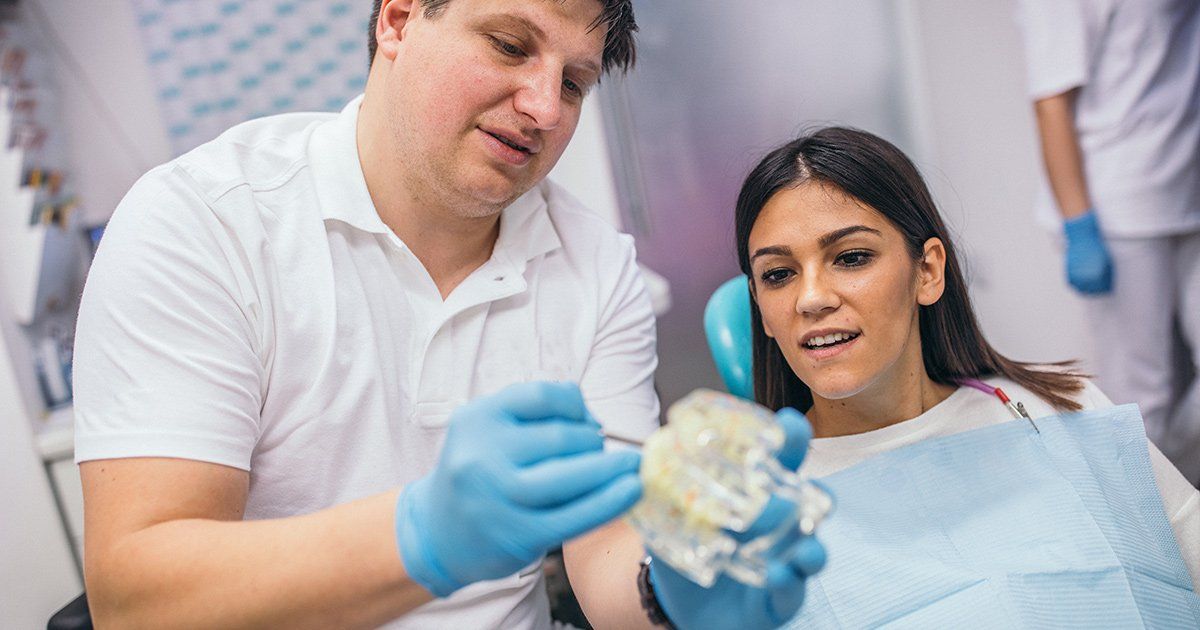Dental Bridges: What You Need to Know
Dental bridges work by filling in gaps in your smile. Learn what you need to know about materials, procedures, and what to expect here.
Did you know that approximately one-third of American adults are unhappy with their smile? Tooth loss from untreated cavities is a common problem that leaves many people looking for tooth replacement options.
Dental bridges have been around for years and can help restore your smile and improve your dental health. If you're looking to get dental bridges, it's important to understand more about the procedure overall. You'll also need to find a dentist in Honesdale, PA, to guide you through the process.
In this guide, you'll learn everything you need to know about dental bridges so you can start smiling confidently again!
Overview of Dental Bridges
If you have missing teeth, you can use a dental bridge to restore the function and appearance of your teeth.
Dental bridges actually bridge the gap where you have missing teeth. Typically, bridges are made from one or more artificial teeth that fill the gap from your missing tooth. These false teeth are held in place by crowns or abutment teeth on either side of your missing teeth.
Artificial teeth can be made from porcelain, gold, metal alloys, or a combination of materials. Dental bridges can last up to 10 years if you maintain good dental health habits and proper tooth care.
Why Do You Need a Dental Bridge?
It's important to remember that your teeth all work together. Healthy teeth are necessary for proper nutrition and speech. Also, if you're missing teeth, your other teeth can shift and move into the space. This can cause problems, such as:
- Difficulty chewing
- Misalignment of your bite
- Pain and tension in your jaw
- Decrease in self-confidence due to the appearance of your smile
Dental Bridge Benefits
There are many advantages of getting dental bridges. First, they restore your smile and help you to feel more confident. Other benefits include:
- Maintains the natural shape of your face by preventing bone loss due to missing teeth
- Allows you to chew your food normally
- Improves your speech
- Prevent your teeth from shifting into empty spaces
Types of Dental Bridges
There are four main types of dental bridges you can get. An experienced dentist will let you know what options are best for you by evaluating your overall dental health.
These types include:
Traditional Bridges
A traditional bridge is the most popular type of bridge. These bridges have two or more crowns and an artificial tooth that connect together. The crowns keep the bridge secured in place. Typically traditional bridges are made from porcelain, ceramics, metal, or porcelain fused to metal.
Cantilever Bridges
Cantilever bridges are not as common. These types of bridges only require you to have one natural tooth on the side of the gap from your missing tooth. They're similar to a traditional bridge but are only held in by one abutment tooth instead.
Cantilever bridges tend to be less durable since they're only supported by one tooth instead of two.
Maryland Bridges
Maryland dental bridges are also known as resin-bonded bridges. These bridges are most often used to replace your front teeth.
Instead of abutment teeth, this bridge is made from a metal frame that attaches to the artificial tooth. This frame has wings that your dentist will cement to the teeth on both sides of the gap.
Maryland dental bridges aren't as common and are only an option if you have healthy natural teeth on the sides of the gap.
Implant Supported Bridges
With implant support bridges, you'll get implants surgically placed in your jawbone, which will support your bridge. Once these implants are in place, metal posts are attached to secure your bridge.
Implant-supported bridges are incredibly durable and can last a lifetime with good dental care. They're also a popular solution for anybody who doesn't want to have traditional bridges.
It's important to know that you'll need enough healthy jawbone to support implants. Otherwise, you may need a dental bone graft to allow new bone to grow.
Dental Bridge Procedure
Typically, you'll need two dental appointments for a traditional or cantilever dental bridge procedure. The number of appointments depends on what type of bridge you'll be getting.
For traditional and cantilever bridges, the teeth next to the gap will need shaping in order for the bridge to fit into place. You'll first get a local anesthetic to numb the area. Next, your dentist will remove enamel from your teeth to prepare them for crowns.
You'll then have impressions or 3D scans so your artificial tooth and crowns will fit perfectly. Typically, your dentist will make a temporary bridge for you to wear until the permanent one is ready. At your second appointment, your dentist will cement the permanent bridge securely into place.
For Maryland Bridges, your dentist will only need to etch the back of the adjacent teeth around your gap to help with bonding. They'll apply a resin to bond the metal wings to the back of your teeth.
Procedure for Implant Supported Bridges
After an anesthetic, your dentist will make small incisions in your gums to expose your jawbone. The implants have titanium screws that your dentists will insert into your jawbone.
You'll need to heal for 3 to 6 months to allow the jawbone to grow around the implants. After this, you'll have another procedure to attach metal posts to the implant. After another two weeks of healing, you'll be ready for bridge placement.
Talk to a Dentist in Honesdale, PA, About Dental Bridges
Now that you understand more about dental bridges, you'll feel much more comfortable taking the next steps.
If you're looking for an experienced dentist in Honesdale, PA, you won't need to look any further than Complete Health Dentistry of NEPA. We offer general, restorative, and cosmetic dentistry services, including dental cleanings, bridges, crowns, implants, Invisalign, and more.
We care for your overall health, and our comprehensive dental exams include blood pressure, oral cancer, and sleep apnea screenings.
We focus on compassionate and personalized care and will ensure you have the right health education so you can understand the connection between your overall health and dental health.
Make sure you
contact us today to schedule an appointment!


